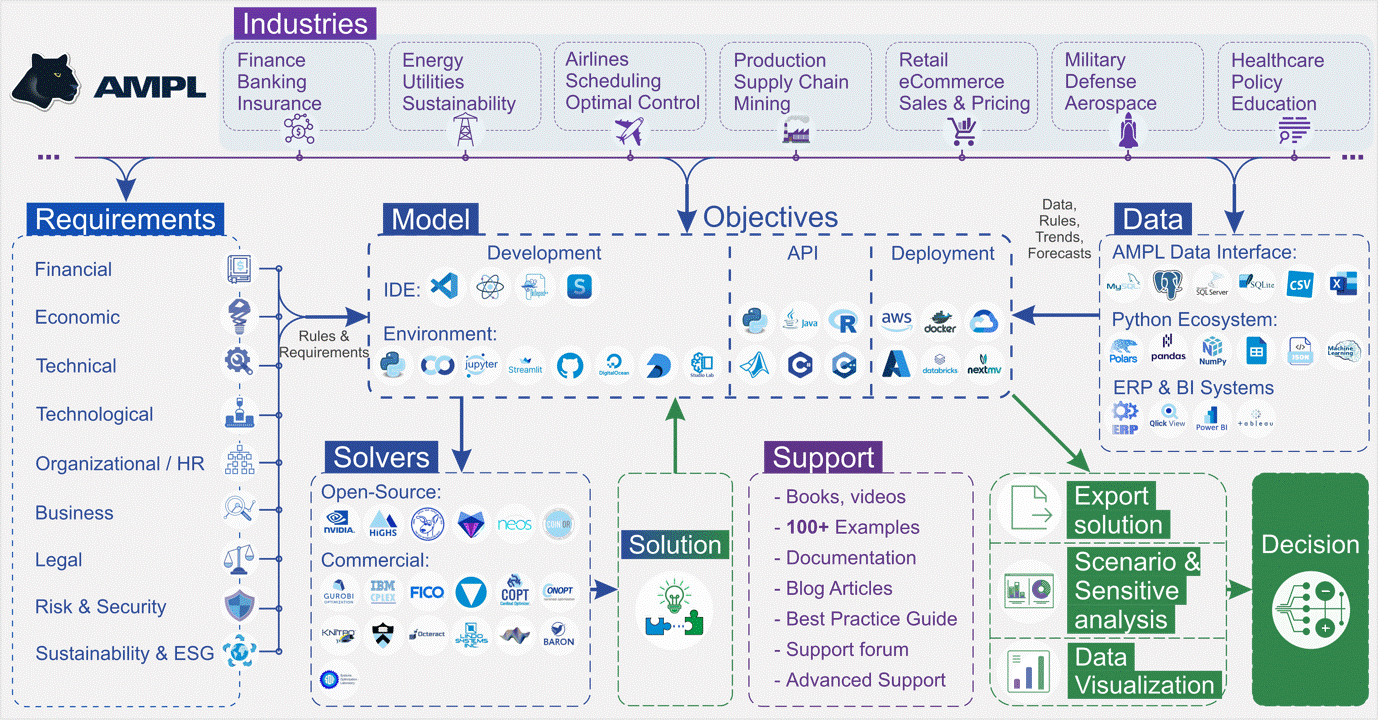“From finance to supply chains, from energy to healthcare — today’s companies face complexity at every turn. Spreadsheets and ad-hoc tools are no longer enough. What’s needed is an ecosystem that connects data, analytics, forecasts, and optimization into decisions that drive growth. That’s exactly what the AMPL ecosystem delivers”

Every company starts with requirements:
AMPL enables businesses to translate these diverse requirements into mathematical optimization models that reflect the real world.
With AMPL, models can be developed in familiar environments such as VS Code, Python, Jupyter, Streamlit, or cloud services. This flexibility supports both data scientists experimenting locally and teams deploying optimization at scale in enterprise and cloud settings.
AMPL connects seamlessly with the best world-wide open-source (HiGHS, CBC, SCIP, etc.) and commercial solvers (CPLEX, Gurobi, FICO, Knitro, BARON, and more). This flexibility ensures the right balance of performance, scalability, and cost for every problem.
Optimization is not just about building models — it’s about achieving business goals.
AMPL supports:
This ensures optimization moves from the lab into real-world business applications where it directly impacts decisions.
Data is the fuel of optimization, and AMPL ensures seamless connectivity:
With the AMPL Ecosystem, companies can automatically pull live data, optimize decisions, and push results back into business systems — creating a continuous feedback loop for smarter operations.
The AMPL ecosystem closes the loop by enabling:
The outcome? Companies don’t just generate numbers — they make decisions they can trust.
AMPL accelerates adoption and maximizes value with:
This means companies can learn, experiment, and scale with confidence.
AMPL helps businesses grow by addressing critical challenges in multiple domains:
By uniting requirements, models, solvers, data, and support in one ecosystem, AMPL helps organizations:
AMPL isn’t just a modeling language & system — it’s a growth engine for modern companies.
Technical Development Team